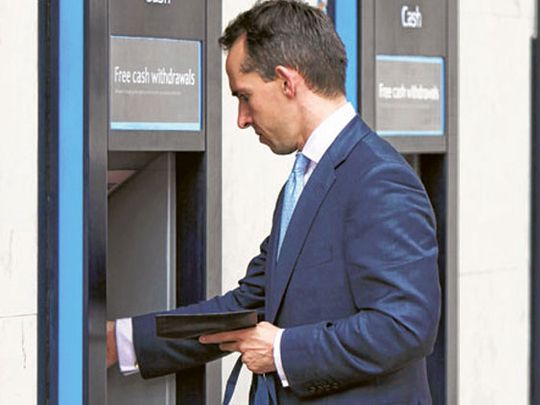
Most of us working in Dubai have some form of debt - a car loan, personal loan, mortgage or, worst of all, credit card debt. Over the years, I have met many people in Dubai who spend a lot more than they actually earn; in some cases, 75 per cent of the income generated is spent on just servicing the insane interest rates that some of these "easy-to-apply" loans come with.
In extreme cases like the one mentioned above, those involved end up paying towards these cards/loans for the rest of their lives. Spending habits are a tricky thing, and if you can't control them, the years will only make things worse. I shudder every time I see youngsters take loans to fund their "lifestyles". This is unacceptable. I've always believed that if you can't afford it from your income, then don't spend it. Credit cards and loans present you with the false hope that stuff beyond your earning capacity is affordable because of "available credit".
Remember - when a personal loan finances something you've just bought, you are probably paying between 9 and 14 per cent per annum servicing that loan. On a credit card, it is as high as 36 per cent. In most cases you will end up paying for the product long after it has been discarded. What's worse is that there will always be newer products to tempt you. At the risk of sounding pedantic, let me ask you to consider the pros and cons before you make your next big purchase. As someone who is responsible for ensuring my clients always make money from their investments, I can assure you that to consistently get a return of 9 to 36 per cent per annum (to offset the effect of the interest from loans) is a big ask.
Is the total outstanding amount owed not reducing much despite most of your income servicing that credit card debt? The smart thing to do in a situation like this would be to apply for a personal loan (interest rates are nearly half as much as credit card loans) to clear off your credit card debt. However, this will only work if you promise not to spend on your credit card again, or else you'll just have more debt to service. This could also give you some breathing space to create a cash buffer to take care of potential emergencies.
Similarly, avoid education loans. If you need a loan to put your child through school, you may want to reconsider your choice of school. Or plan in advance for this expense. If you intend to pay up to 14 per cent (maybe even more) to have your child study at that school, what are you going to do when your child goes to university?
So what's the plan now? Monitor your money with a monthly budget sheet with an aim to find out (after accounting for basics like rent, utilities, groceries and so on) what your disposable income is. Keep room to add the yearly bonus (if any) or income from other sources. Keep room also for any emergency funds you may require. This is the blueprint for monthly expenses - plan your expenses from here. Not only does this help keep your finances in check, it also fosters a saving habit.
Rickson D'Souza is director of wealth management at Pinnacle Insurance Brokers, Dubai, Tel: 04-436-8888. He is a member of the Top of the Table at the Million Dollar Roundtable. This basically means he is among the top 1 per cent of financial advisers in the world.


